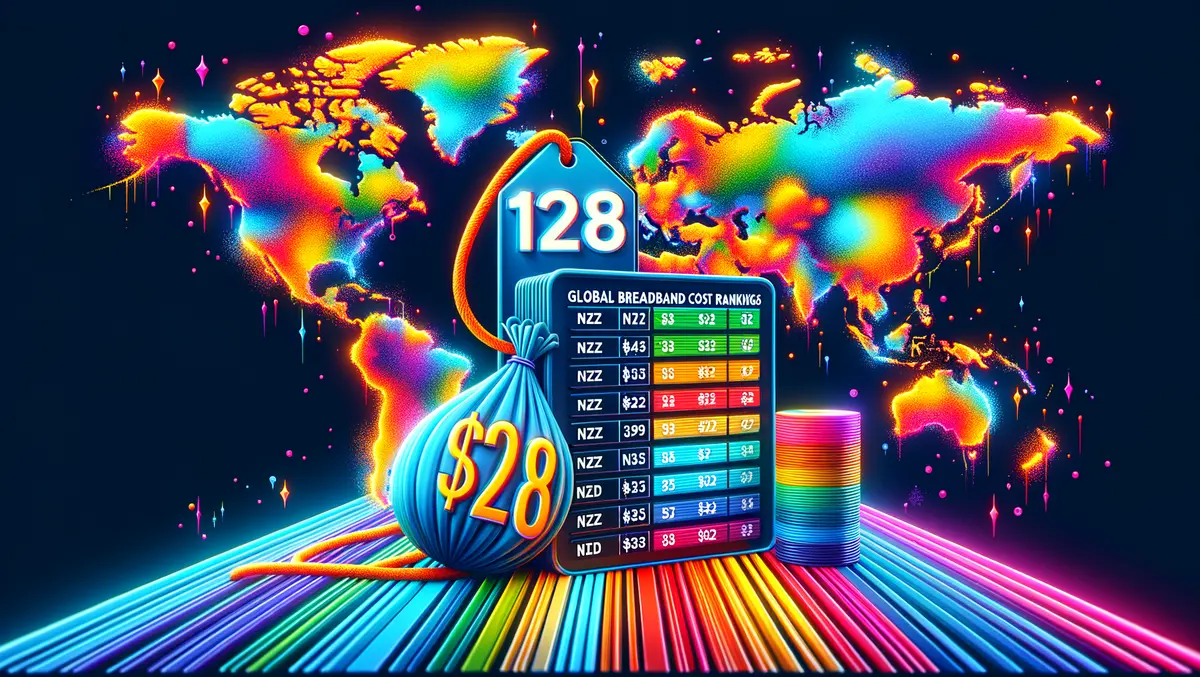
New Zealand 128th in global broadband cost rankings
Recent research has revealed that New Zealand ranks 128th globally in terms of broadband costs, raising questions about whether Kiwis are paying too much for internet services.
The findings, from Cable.co.uk, highlight discrepancies in broadband pricing worldwide, with a significant cost burden observed in the Oceania region compared to other global areas.
New Zealand's average monthly broadband cost was found to be NZD $82, a sum over twenty times higher than the world's cheapest broadband available in Sudan, priced at NZD $3.91 per month. The survey reported that New Zealand's broadband plans ranged from NZD $45.83 to NZD $120 per month. Despite these steep costs, Gavin Male, CEO of NZ Compare, pointed out that there are more affordable options available within the country.
"We are very fortunate to have such a high-quality fibre broadband network in New Zealand, and the vast majority of consumers are now taking advantage of the technology. It is just a shame that so many of us are still paying more than we need to for our internet connection at home," said Male. NZ Compare offers various fibre broadband plans starting from NZD $50 per month with speeds starting from 50 Mbps, which are suitable for most small households.
Oceania was noted as an expensive region for broadband, but New Zealand fared better than several of its neighbours. In the league table of the 16 Oceanic countries surveyed, New Zealand ranked 4th, outperforming Australia, which came in at 5th in Oceania and 130th globally. The Cook Islands and Samoa ranked even lower, at 7th and 13th in Oceania respectively.
Dan Howdle of Cable.co.uk explained that the high broadband costs in developed nations like New Zealand might not solely be due to the expense of technology rollout but also higher earnings and market conditions. He pointed out that Eastern Europe and CIS nations offer some of the lowest broadband prices despite having advanced infrastructure. "These examples obliterate the notion that regions such as Western Europe and North America pay more because of the cost of rolling out new technologies, and actually points more readily to the idea that people in these regions are made to pay more simply because they can," Howdle remarked.
The cheapest broadband in the world was found in Sudan (USD $2.40 per month), followed by Argentina (USD $5.17), Belarus (USD $7.03), Ukraine (USD $7.35) and Egypt (USD $8.31). On the other end of the spectrum, the Solomon Islands had the most expensive broadband, with an average monthly cost of USD $457.84, followed by Burundi, Turks and Caicos Islands, British Virgin Islands, and Bermuda.
NZ Compare, established in 2016, continues to be a crucial resource for Kiwis seeking cost-effective broadband solutions. The platform offers an extensive range of plans and providers, enabling consumers to compare and find the most suitable options. As the cost of living continues to be a significant concern, sites like NZ Compare help users identify saving opportunities and make informed decisions about their broadband services.
With record-breaking site traffic in 2023 and a continually expanding list of providers, NZ Compare remains dedicated to simplifying how New Zealanders choose utility providers and plans, ensuring they do not overpay for their connectivity needs.


